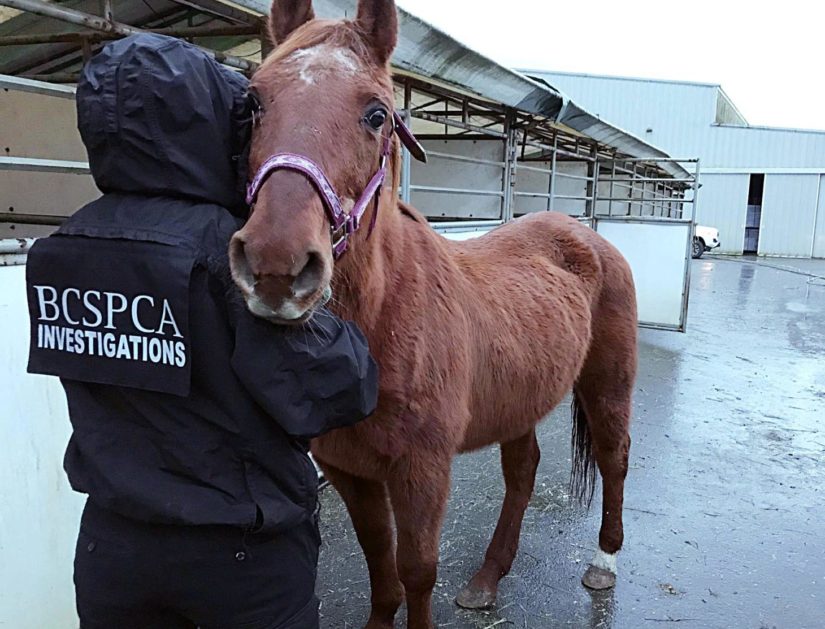Laws & enforcement in your community
The BC SPCA recognizes that pet-friendly housing is limited in B.C. To make it easier to work together to create humane communities, we have developed resources to help renters demonstrate themselves as responsible guardians and assist strata councils and property owners in effectively managing their buildings and suites.

Learn more about finding pet-friendly housing for you and your pet.
PCA Act
The BC SPCA derives its powers to investigate and take action in instances of animal cruelty from the Prevention of Cruelty to Animals Act (PCA Act).
We are the only animal welfare organization in B.C. with the authority to enforce laws relating to animal cruelty and to recommend charges to Crown Counsel for the prosecution of those who inflict suffering on animals.

Criminal Code of Canada
It is a crime in Canada to intentionally harm animals. Anyone who deliberately harms animals can be charged under the Criminal Code of Canada.
The Criminal Code of Canada deals specifically with cruelty to animals in sections 444 to 447.
Our Animal Protection team can recommend charges for Crown Counsel for the prosecution of individuals who inflict suffering on animals under the Criminal Code of Canada.

The BC SPCA is not able to provide details on active investigations into animal cruelty cases, as doing so may compromise any potential charges or other legal actions we may take.
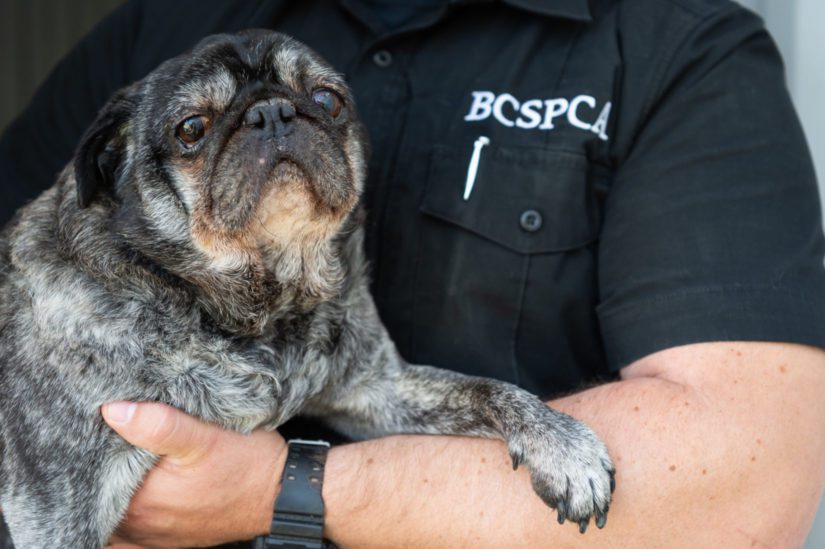
The BC SPCA is the only animal welfare organization that can investigate animal cruelty as established by the Prevention of Cruelty to Animals Act and the Constitution and Bylaws of the Society (PDF). We are guided by our Code of Ethics (PDF).
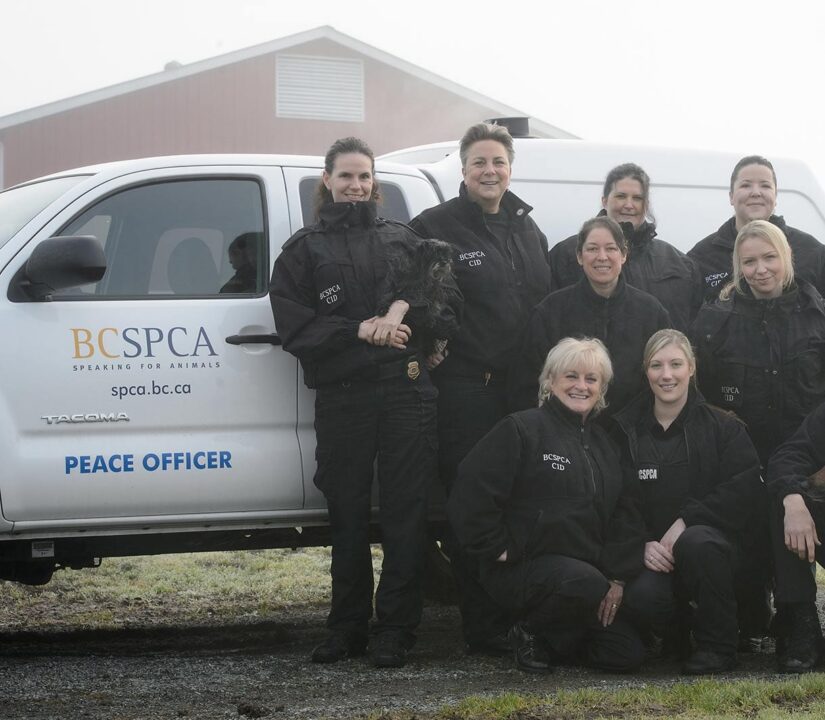
Animal Control agencies enforce city/municipal animal by-laws and, in some cities/municipalities, operate their own animal facilities. By-laws may include stray dogs, leash laws and licensing.
In some BC SPCA animal centres, we are contracted by the city/municipality to enforce the by-laws or kennel stray dogs and/or cats. Contact your local animal centre to determine what services we provide in your community.
Please call the BC SPCA Animal Helpline at 1-855-622-7722 to report animal cruelty.
Yes. When you make a report with one of our Animal Helpline operators, let them know that you would like to report anonymously and they will not take your personal information.
Your information could be released in the event of a court order, legal proceeding, another law enforcement agency investigation or if we ask you to provide a statement so that we can obtain a search warrant.
Providing us with your contact information allows our animal protection officers to contact you with additional questions, if necessary. If you wish to be contacted regarding the outcome of the investigation, we can only do so if we have your contact information, otherwise no follow-up information will be available to you at any time.
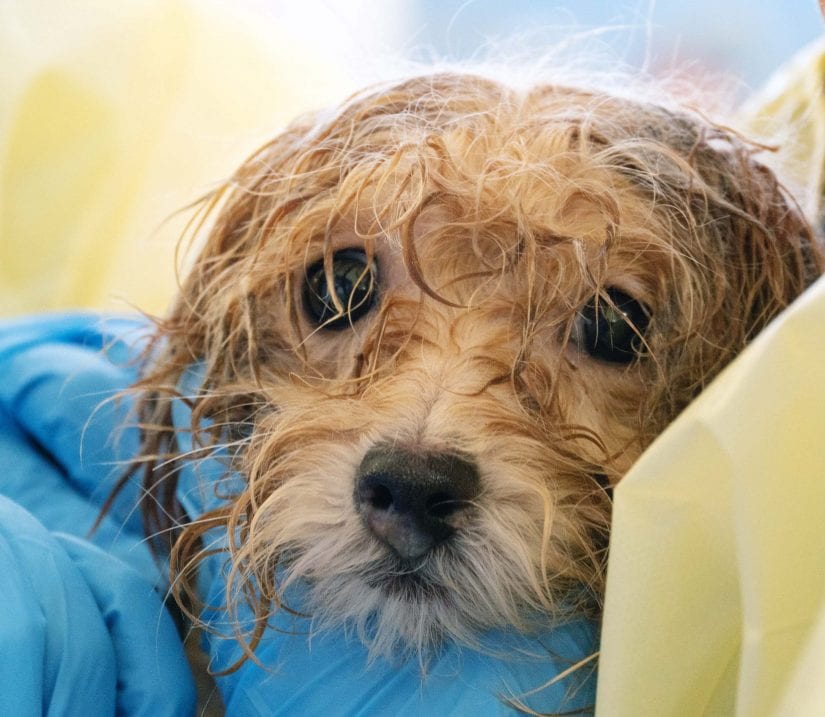
The Prevention of Cruelty to Animals Act (PCA Act) is the provincial animal welfare legislation that outlines required standards of care. The BC SPCA was created under the auspices of the PCA Act, and that’s what gives it the power to investigate and take action on animal cruelty cases. It also details the BC SPCA’s constitution and powers of inspection and enforcement.
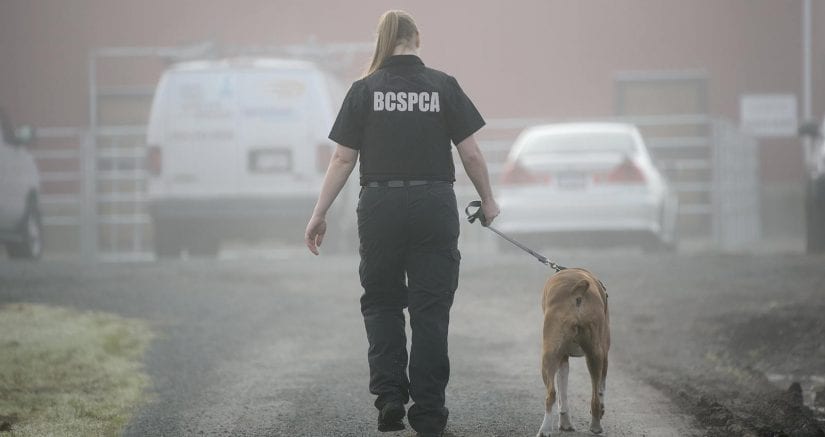
The BC SPCA is the only animal welfare organization in B.C. with the authority to enforce laws related to animal cruelty. In 2008, we successfully campaigned for amendments to the Act that significantly increased protection for abused and neglected animals in B.C.
We continue to propose and support amendments to strengthen the Act. For example, in July 2015, the B.C. Ministry of Agriculture announced a new regulation to adopt the Codes of Practice for the Care and Handling of Dairy Cattle into the PCA Act, specifically outlining what is considered a ‘generally accepted practice’. The inclusion of the Codes complemented our work with the BC Dairy Association, the BC Milk Marketing Board and the dairy industry to improve the welfare of dairy cattle.
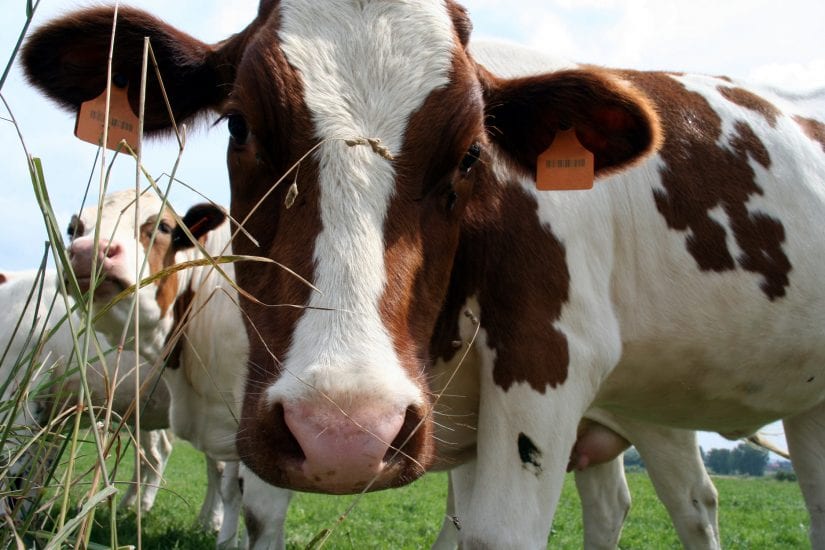
In February 2017, the BC SPCA applauded the government of B.C’s move to target irresponsible dog and cat breeders. The proposed amendments to the PCA Act would enable the B.C. government to regulate commercial breeders through either a registration or licensing system that will help ensure commercial cat and dog breeders are treating animals with the respect and care they deserve.
Investigating reports of animal cruelty and seizing animals in distress is both rewarding and challenging. It’s a job that requires a unique set of skills and the right personality type.
The best way to find out if it’s the right job for you is to start by working in a BC SPCA animal centre to gain experience shadowing Animal Protection Officers and participate in initial investigations.
Currently, we employ 33 Animal Protection Officers throughout the province. Should an opening become available, the job opportunity will be posted on our website.
To learn more, download a description of qualifications, experience and skills required to become a Animal Protection Officer (PDF) with the BC SPCA.
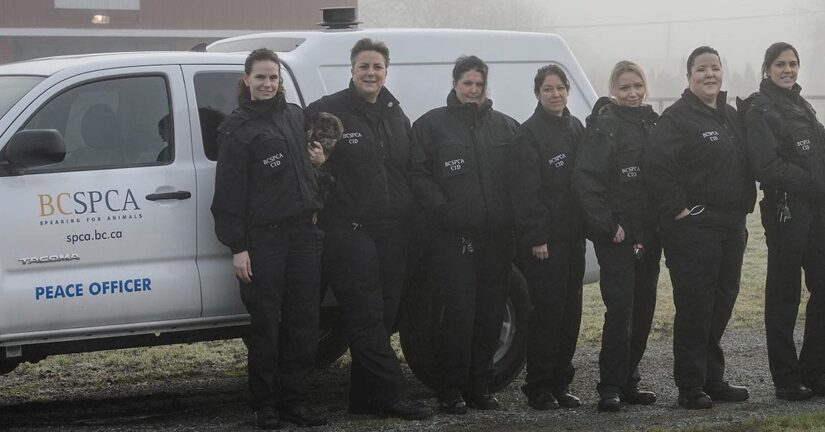
Step 1 – Gathering information
When the BC SPCA Animal Helpline (1-855-622-7722) receives a cruelty complaint, an Animal Helpline operator will gather information from the caller, including but not limited to:
- The caller’s name, phone number and address: While we do accept anonymous reports, contact information is very important in the event that the animal protection officer who investigates the complaint has any questions or difficulty locating the property. Also, if legal action is pursued, we may require a statement.
- The person of interest’s information: Address and name (if known) as well as physical description and whether the caller believes they might be violent.
- A detailed description of the animal(s) and the concerns. Also location of animals if different from the person of interest’s address.
- Date and time of the incident or when the animal was last observed.
All of these questions are necessary to ensure we provide the animal protection officers with as much information as possible to assist them in their investigation.
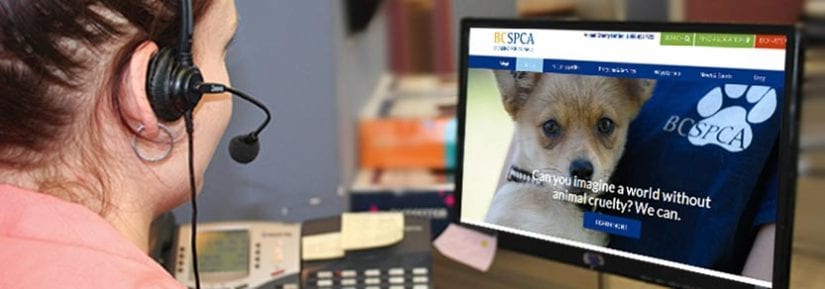
Step 2 – Investigating the complaint
An animal protection officer will review the complaint and attend the premises.
Our response time will depend on the number and priority of calls at the time, as well as the location of the animals reported. The officers will attend as soon as they are able, however it is important to remember that the BC SPCA is a non-profit organization with only 30 full time officers for the whole province.
If the animal protection officer attends and finds the complaint to be unfounded, we will close the file with no further action. If the complaint is valid and there are animals in distress, the officer must give the owner the opportunity to relieve the distress within a reasonable period of time. In doing so the officer would issue the owner with notice(s).
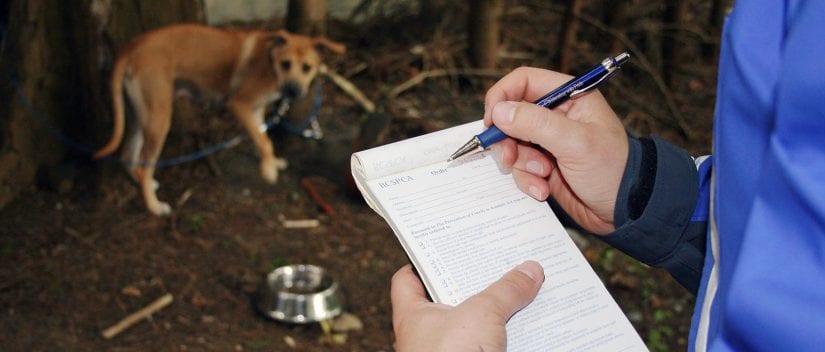
Step 3 – Resolving the issue
If the owner complies within the provided time period, we will close the file. If the owner does not comply within the time period, the animal protection officer may either issue new notices, provide additional time (depending on the circumstances) or apply for a warrant to seize the animal(s).
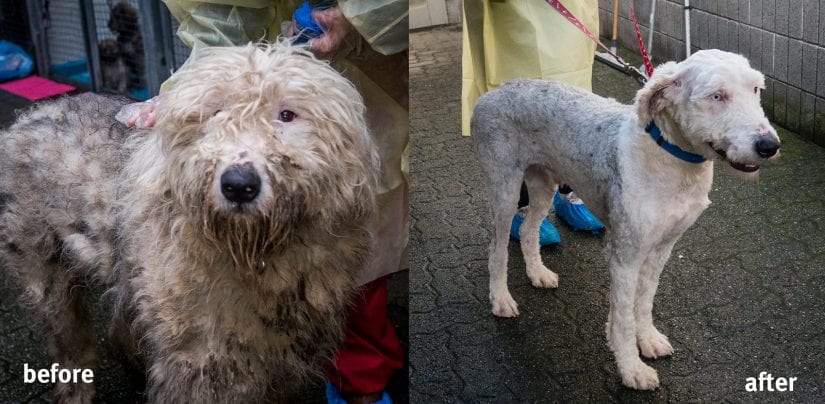
Yes. The BC SPCA complies with the Personal Information Protection Act.
Your information could be released in the event of a court order, legal proceeding, another law enforcement agency investigation or if we ask you to provide a statement so that we can obtain a search warrant.
Providing us with your contact information allows our animal protection officers to contact you with additional questions, if necessary. If you wish to be contacted regarding the outcome of the investigation, we can only do so if we have your contact information, otherwise no follow-up information will be available to you at any time.
